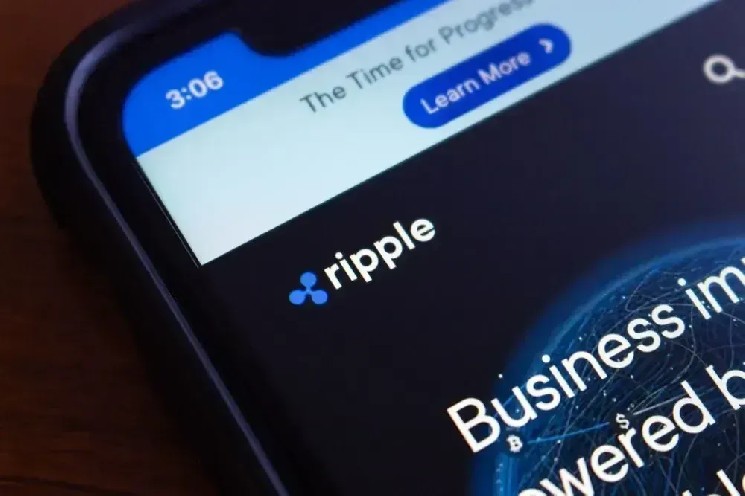
According to Cointelegraph, in an interview with Bloomberg, SEC Chairman Gary Gensler wished the Bit coin white paper a "sweet sixteen" on its 16th anniversary. He stated in the interview that the SEC will continue to maintain its current "enforcement and regulatory" strategy for crypto assets, emphasizing the importance of protecting investors and the healthy development of the market.
Gensler refused to comment on the possibility of former President Trump being re-elected in 2024 and planning to replace his position. The day before this interview, the SEC Examination Division listed crypto assets as a key regulatory focus for 2025. Although there is controversy over Gensler's regulatory approach, he did not indicate any intention to change the current policy.
The Bit coin white paper was published on October 31, 2008, and this year marks its 16th anniversary.
According to the official notice from Radiant Capital, all users who have interacted with Radiant need to take immediate action to revoke authorizations for related contracts. Radiant warned that if authorizations are not revoked in time, user funds may be at risk of theft. Users can visit revoke.cash to remove permissions and ensure asset safety.
Radiant stated that the team is working hard to track down and freeze the stolen funds, and is closely cooperating with security experts and law enforcement agencies to prevent further losses.
After the LayerZero founder raised issues with its contract, Across proposes to limit token supply
According to The Block, following criticism from LayerZero Labs CEO Bryan Pellegrino, Across Protocol co-founder Hart Lambur proposed on Monday evening to permanently cap the supply of ACX tokens at 1 billion. If the proposal is approved by the Across community, Across Governance's ownership of the ACX tokens will also be renounced and set to 0x0 - to prevent any future changes to the token supply through minting or burning.
Previously, Pellegrino had pointed out "serious issues" with the Across token contract. However, this move was opposed by the community, who saw it more as a transparency issue rather than a security vulnerability. Pellegrino stated: "You have incorrectly exposed an internal private function (for token burning) written by OpenZeppelin in their ERC-20 token implementation, and given it to your contract owner - this allows you to withdraw (burn) tokens from any wallet, zeroing out any account, at any time." He also claimed that the Across and UMA protocol contracts can mint tokens infinitely, and suggested that to solve this, ownership should be transferred to an immutable smart contract to prevent minting beyond the total supply, and disallow burning or transfer of ownership.
Lambur initially refuted Pellegrino's allegations, but later acknowledged that while Pellegrino was mistaken in believing their ERC-20 implementation had serious vulnerabilities, "the design choices were wrong", and added that the proposal was made in the "spirit of decentralization and transparency". The proposal is currently undergoing a temperature check vote, with 99.5% of voters in favor of setting a supply cap.
Private equity firm Aurum Equity Partners is launching the world's first $1 billion tokenized fund combining equity and debt. Utilizing Zoniqx's asset tokenization technology and the XRP Ledger blockchain, the fund aims to drive innovation in AI, IoT, and cloud infrastructure. The project will establish data centers in the US, UAE, Saudi Arabia, India, and Europe, and use tokenization to improve investment liquidity and transparency. Aurum's collaboration with Zoniqx demonstrates the practical application of blockchain technology in traditional financial markets, supporting the digital transformation of global asset management.
Coinbase International will list Scroll perpetual futures contracts
Coinbase International has announced on the X platform that Coinbase International and Coinbase Advanced will add support for Scroll perpetual futures contracts. The SCR-PERP market is expected to open at 8:30 PM Beijing time on October 22, 2024 or later.
DeFi platform Azura raises $6.9 million in seed funding led by Initialized
According to Fortune magazine, the DeFi platform Azura officially launched on Tuesday after raising $6.9 million in a seed funding round led by Initialized. Other investors include Volt Capital, Winklevoss Capital, and Solana co-founder Raj Gokal. The funding will be used to scale the application, including increasing payroll, improving software, and purchasing better servers.
Azura provides market data access, full trade lifecycle support, and DeFi asset trading. It aims to connect various crypto wallets, blockchains, exchanges, and other protocols through a single interface layer, reducing trust risk by eliminating intermediaries and returning control to users. Azura was previously launched as a private invite-only closed beta test under the name Thunder, and all Thunder users will be migrated to Azura.
$4.2 billion in BTC options and $1 billion in ETH options to expire this Friday
According to CoinDesk, data shows that BTC and ETH options contracts with a notional value of $4.2 billion and $1 billion respectively are set to expire on Friday at Deribit. The maximum pain point for Bit coin options is at $64,000, with a put/call ratio of 0.62, indicating a bullish market sentiment. Ethereum is currently trading around $2,600, right at its maximum pain point.
Notably, over $682 million in BTC options (16.3% of the total $4.2 billion) will be in-the-money at expiration, with the majority being call options. Call options are considered in-the-money when the strike price is lower than the current market price, while put options are in-the-money when the strike price is higher than the spot price.
Bit coin mining difficulty increased by 3.94% to 95.67 T this morning
According to CloverPool data, Bit coin mining difficulty saw an adjustment at block height 866,880 (2024-10-23 02:05:01), increasing by 3.94% to a new all-time high of 95.67 T. The current network average hashrate is 706.03 EH/s.








